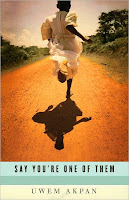 The unprecedented prosperity and creativity of the Roaring Twenties acts as a striking counterpoint to the poverty of a young Southwestern town, in this eloquent tale drawn from real sources of African American history. The hopeful residents of Greenwood, Oklahoma, are still suffering economically but plan to turn their lives around. Richard Rowland’s love for Sarah Page worries his father and offends the sensibilities of the people who hold the power of life and death over him.
The unprecedented prosperity and creativity of the Roaring Twenties acts as a striking counterpoint to the poverty of a young Southwestern town, in this eloquent tale drawn from real sources of African American history. The hopeful residents of Greenwood, Oklahoma, are still suffering economically but plan to turn their lives around. Richard Rowland’s love for Sarah Page worries his father and offends the sensibilities of the people who hold the power of life and death over him.L. J. McSpadden is the son of slaves who has overcome incredible odds to become a success and yet is the thorn in the side of men more powerful than he. And William Hogg is driven to build the greatest city in the Southwest. Many more men pass through town who help shape the economic and political standards of the time, but when their goals collide with the citizens of Greenwood, a conflagration ignites that terrifies some and excites others.

















